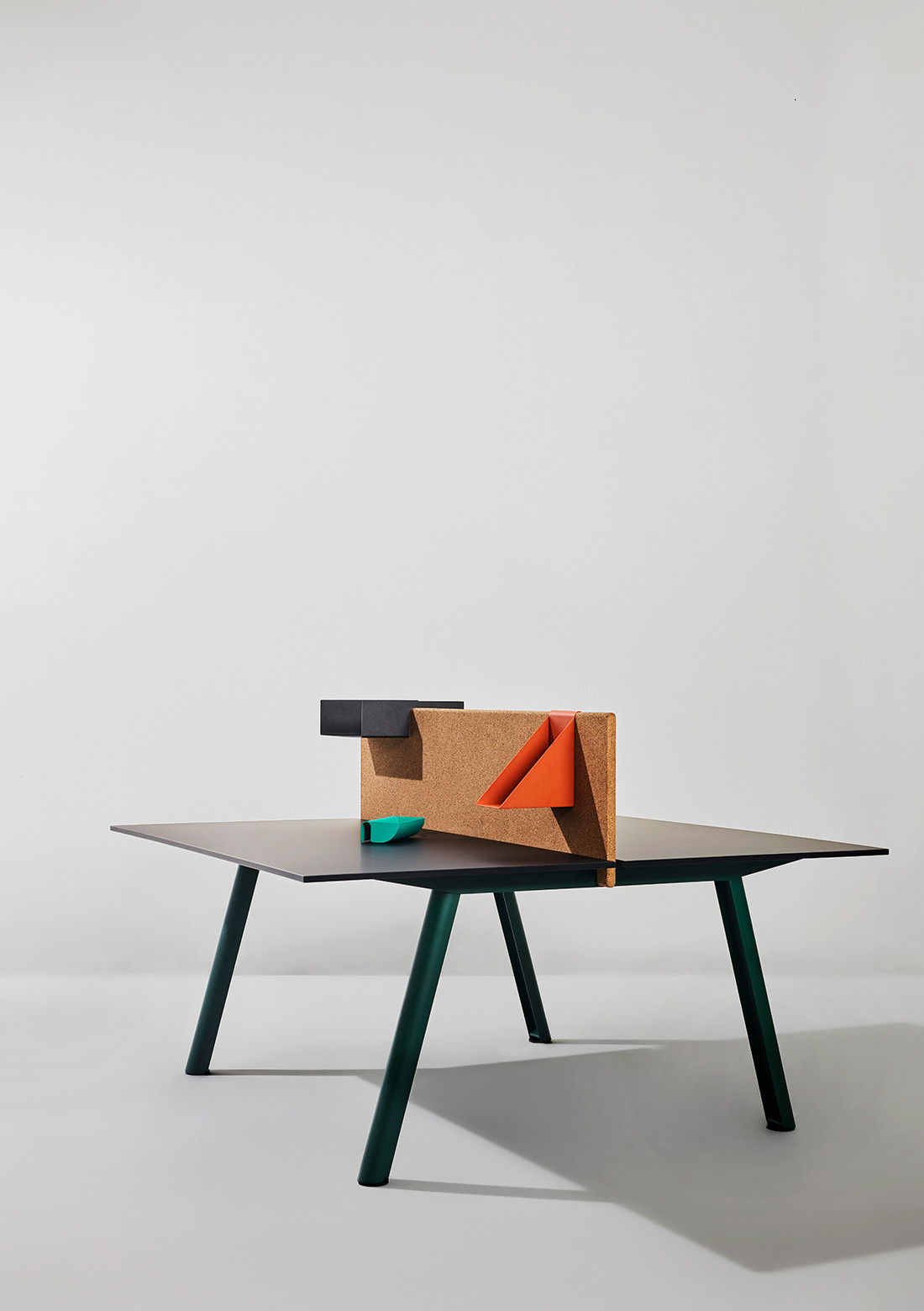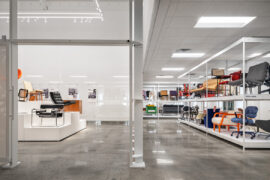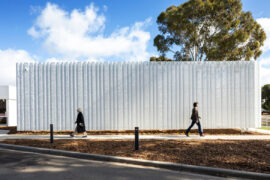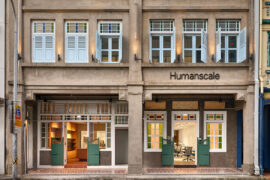In today’s workplace where social and activity-based work spaces take precedence, Elisa and Grazia Manerba are curators of ‘exchange’.

Manerba Spa might be an historical Italian company, founded in 1969 by Sergio and Federica Manerba, but the brand’s focus is firmly on the future – specifically, the future of the workplace. It’s interested in how the company’s traditional values of craftsmanship and Italian style can inform a new vision of the office as an adaptable space that reflects technological, social and cultural evolution.
Today, as Manerba is in its sixth decade, it is lead by sisters Elisa and Grazia Manerba, alongside their parents, who still work in the company. “It was like growing up in a big family,” says Elisa, of her lifelong association with the company. “I have known this world since I was a child, and the history of the company is the history of our family.”

Elisa, who studied economics and commerce, is the Italian and foreign sales director, while Grazia, who studied engineering, has dedicated herself to developing and optimising products. “We have very different roles, but we have a shared vision,” says Elisa. “Together, we take the steps we need to allow the company to grow.”
Their shared vision – which they presented at Milan’s Salone del Mobile in 2019 – is of a ‘boutique’ office, with a range of highly customisable products dedicated to enabling the exchange of ideas. In this vision, the workplace is a comfortable and welcoming environment, taking inspiration from domestic design sensibilities. “This is a space that is dreamed of by each of us,” says Elisa. “Thanks to devices, people can now work anywhere. In a workplace, the most important thing is the social spaces where people can meet and discuss.”

When Manerba launched in Australia in February 2020 with James Richardson Furniture, they did so with the three product families that most characterise this ideal: Undecided, Apollo and Stem. “These are products that reflect our philosophy of ‘fluidity’ and personalisation,” says Elisa. “We want to bring that vision to Australia.”
Undecided is a playfully proportioned collection of award-winning seating that reflects Manerba’s focus on comfort and a domestic touch in the workplace. The collection’s name comes from its modular pillow structure that can be easily reconfigured to change seat height, privacy and colour to suit an ever-changing environment – whether office, airport lounge or hotel lobby.

The playfully proportioned Undecided collection by Raffaella Mangiarotti and Ilkka Suppanen for Manerba.
Apollo is an affordable, modular system of scalable desks inspired by the sisters’ boutique vision. Similarly, Stem is a modular bookcase system that can be configured to meet the exact needs of its users.
“Today, working often happens outside of the ‘common’ working space, in areas such as hotels and airports, and so the workplace follows a more dynamic way of working, which changes very quickly,” says Elisa. “So, office furniture has to adapt to the user and create a beautiful and comfortable workplace.”

Apollo, the modular system of scalable desks by Shane Schneck for Manerba.
In the coming years, Elisa and Grazia believe that the workplace will be an even more bespoke space – with colour playing a big role in defining and individualising space. “Colour can personalise any environment,” says Elisa. “Our ‘colour project’ is the result of our research into new trends, materials and surfaces. As a result, we have applied colour to all our collections, starting with our Linea partition walls that divide a space with colour. The research continues with our Stem bookcase system, in which components can be combined to create new, custom chromatic compositions.”


The highly configurable Stem modular bookcase system by Philippe Nigro for Manerba.
Like colour, sustainability is another key concern and, for Manerba, this is an approach driven by longevity. Products are designed to be reused, recycled, and durable where recyclable materials – including timber, fabric, aluminium, glass and cork – are selected over plastics. The company is also ISO 14001 and FSC certified. “Every time we introduce a new collection, we put sustainability first,” says Elisa. “This has always been in our DNA.”
One of the company’s most ambitious and experimental sustainable initiatives was Office+Retrofit, in which designers, architects and other creatives were invited to imagine an eco-friendly “second life” for Manerba’s old stock furniture. In doing so, they created new collections using old furniture. Sovrappensiero design studio, for example, transformed old desk caddies into plant trays and turned surplus seats into colourful mismatched benches.
“The office is in constant change,” says Elisa. “We don’t work the way we did 50 years ago, but nor do we work the way we worked last year. At Manerba, we know how to transform and evolve – and that is what the future workplace needs.”
INDESIGN is on instagram
Follow @indesignlive
A searchable and comprehensive guide for specifying leading products and their suppliers
Keep up to date with the latest and greatest from our industry BFF's!

Rising above the new Sydney Metro Gadigal Station on Pitt Street, Investa’s Parkline Place is redefining the office property aesthetic.

The undeniable thread connecting Herman Miller and Knoll’s design legacies across the decades now finds its profound physical embodiment at MillerKnoll’s new Design Yard Archives.

Through expert architecture, EBD Architects has provided a human face to great design and created a project that enhances the lives of people and community.

Humanscale’s new showroom is about the modern workplace, with ergonomic excellence, sustainable design and architectural heritage in Singapore.
The internet never sleeps! Here's the stuff you might have missed

A stunning indoor space reveals artistry in every aspect, from outlook to underfoot.

David Gole, principal at leading climate-resilient design practice JDA Co., comments on the intersection between heritage and climate in architecture.